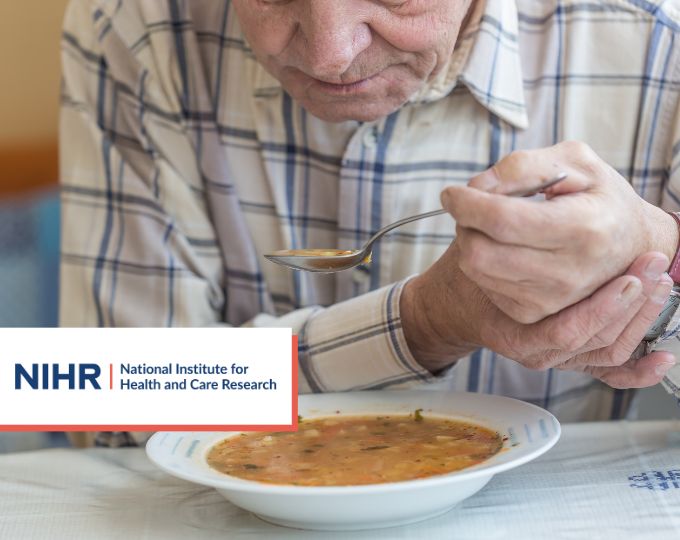
The symptoms of Parkinson’s get progressively worse over many years and affect all aspects of daily life. A study described the challenges people and their carers face as the condition progresses, and the strategies they use to cope. Their report includes practical suggestions for healthcare services.
Researchers interviewed 21 people with the condition and 17 of their families or carers. The research identified 3 stages of disease: early (acceptance of the diagnosis); middle (increased use of healthcare services); and late (increasing dependence). The study found that better understanding of the transitions between stages could help plan for increasing support needs.
The interviews described people’s coping strategies. Focusing on what they can do, rather than what they can’t, was often helpful. Recommendations for healthcare services included greater awareness of the needs of people with Parkinson’s, as well as providing ongoing, tailored support to patients and their families and carers.
The study has informed the development of a website, Live well with Parkinson’s, which includes practical advice.
More information about Parkinson’s disease can be found on the NHS website.
The issue: people with Parkinson’s have changing support needs
Parkinson’s disease causes progressive damage to parts of the brain over many years. The main symptoms include involuntary shaking of parts of the body (tremor), slow movement and stiff muscles. People with the condition may experience depression, anxiety, balance problems, difficulty moving forward (freezing), and difficulty sleeping. Symptoms and disease progression vary between people.
As Parkinson’s progresses, people have to make psychological and social changes. They experience so-called on/off periods, during which medications might stop working. They need increasing support from family, carers and healthcare services.
The study aimed to help people anticipate disease progression, and share strategies to help others cope.
What’s new?
Researchers interviewed 21 people with Parkinson’s disease aged 45–89 years, along with 17 family members (13 spouses and 4 adult children). They asked about the challenges they faced, how they cope and what could help them manage better. Descriptions were grouped according to the stage of disease.
Early disease: the diagnosis
The diagnosis could come as a shock. Acceptance often took longer in younger people. One said: “It was sort of out of the blue, because I was initially… being treated for arthritis, but eventually they said I had… young onset Parkinson’s.”
Some people felt they didn’t receive enough information when they were diagnosed; others felt empowered by finding information themselves. Some kept their diagnosis hidden because of reluctance to accept it, cultural stigma, or fear of losing employment.
Middle disease: living with Parkinson’s
As the disease progressed, people took part in fewer social activities because of how they felt about themselves, or because their symptoms made it difficult for them to go out or be spontaneous.
They became more reliant on healthcare providers as the disease progressed but access to specialists was variable. One man said: “I’ve spoken to people who’ve never had any… contact from occupational therapists… I didn’t have contact …until I’d been assessed for medical retirement, which was nine years in.”
People admitted for respite care to hospital or care homes did not always get the support they needed. For instance, medications could be delayed.
Late-stage disease: increasing dependence
People described increasing reliance on others. Families and carers took over care for the person with Parkinson’s, as well as household matters. Partners described the change in their role from ‘spouse’ to ‘carer’. One spouse said: “I just do feel like ‘the carer’ [. . .]. Well, we’re not really physically intimate now… He probably just sees me more as his carer.”
Study author
“We wanted to understand the challenges and experiences of people with Parkinson’s and their families and carers so we could help support them and empower them to self-manage the condition.
This study was part of a bigger programme of work that aims to develop and evaluate a self-management website for people with Parkinson’s. It is designed to help people become more involved in the management of their care which we hope will reduce hospital admissions and improve quality of life. People have access to the Live Well with Parkinson’s website and work with a trained supporter to set their own goals.
The website is currently being tested in a randomised controlled trial in different areas in England.”
Nathan Davies, Associate Professor, Director of Centre for Ageing Population Studies (CAPS), UCL, London
Why is this important?
The study highlights people’s changing needs at each stage of disease.
In early disease:
- clear, empathetic explanations of the diagnostic process can encourage people to ask questions
- signposting to a relevant patient group, for example, young-onset Parkinson’s, helps people meet others at the same age and stage.
In middle disease:
- flexible support helps people keep up social contacts and maintain a sense of self; a focus on what people can do rather than what they can’t, can be empowering
- tailored information can help people and their families recognise changing needs and collaborate to make informed choices, including on long-term and end-of-life care
- support to navigate the health system may be needed; awareness campaigns (such as Parkinson’s UK ‘Get it on time’ campaign) can help
- continuity of care is important; this could be via non-specialist healthcare professionals who are trained in Parkinson’s.
In late disease:
- families need ongoing support and advice, to have their experiences acknowledged and to be increasingly involved in consultations and decisions about care
- providers need to respond to the changing needs of people with Parkinson’s and support aspects of life that are important to the individual.
Some of these findings could be relevant to people with other long-term conditions.
This study was carried out in Southern England. Services vary across regions and internationally, and people elsewhere could have different experiences. People in the study had socially diverse backgrounds, and were from a mix of inner city, suburban and rural settings. However, ethnic diversity was limited. Single people living alone were underrepresented and may have different experiences to those living with others.
What’s next?
The findings of this study informed the Live Well with Parkinson’s self-management website which includes videos with practical advice for people with Parkinson’s and their families and carers, online sessions for people who have just received a diagnosis and their family and friends, a discussion group.
The changing needs of people with Parkinson’s
- Early disease (diagnosis): clear, empathetic explanations and signposting to a relevant patient group.
- Middle disease (living with Parkinson’s): flexible support to help people keep up social contacts; a focus on what they can do; tailored information; collaboration with families to make informed choices (including on end-of-life care); support to navigate the health system; continuity of care.
- Late disease (increasing dependence): ongoing support for families who will have increasing involvement in decisions; support for aspects of life important to the individual.
You may be interested to read
This Alert is based on: Read J, and others. Transitions and challenges for people with Parkinson’s and their family members: A qualitative study. PLoS ONE 17:e0268588.
A short video on the University College London website explaining the background to the study.
Information about how Parkinson’s disease progresses can be found on the Parkinson’s UK website.
A Parkinson’s UK campaign to raise awareness of the importance of getting medication on time.
Funding: This study was funded by the NIHR Programme Grants for Applied Research.
Conflicts of Interest: The study authors declare no conflicts of interest.
Disclaimer: NIHR Alerts are not a substitute for professional medical advice. They provide information about research which is funded or supported by the NIHR. Please note that views expressed in NIHR Alerts are those of the author(s) and reviewer(s) at the time of publication. They do not necessarily reflect the views of the NHS, the NIHR or the Department of Health and Social Care.

 Print This Post
Print This Post





